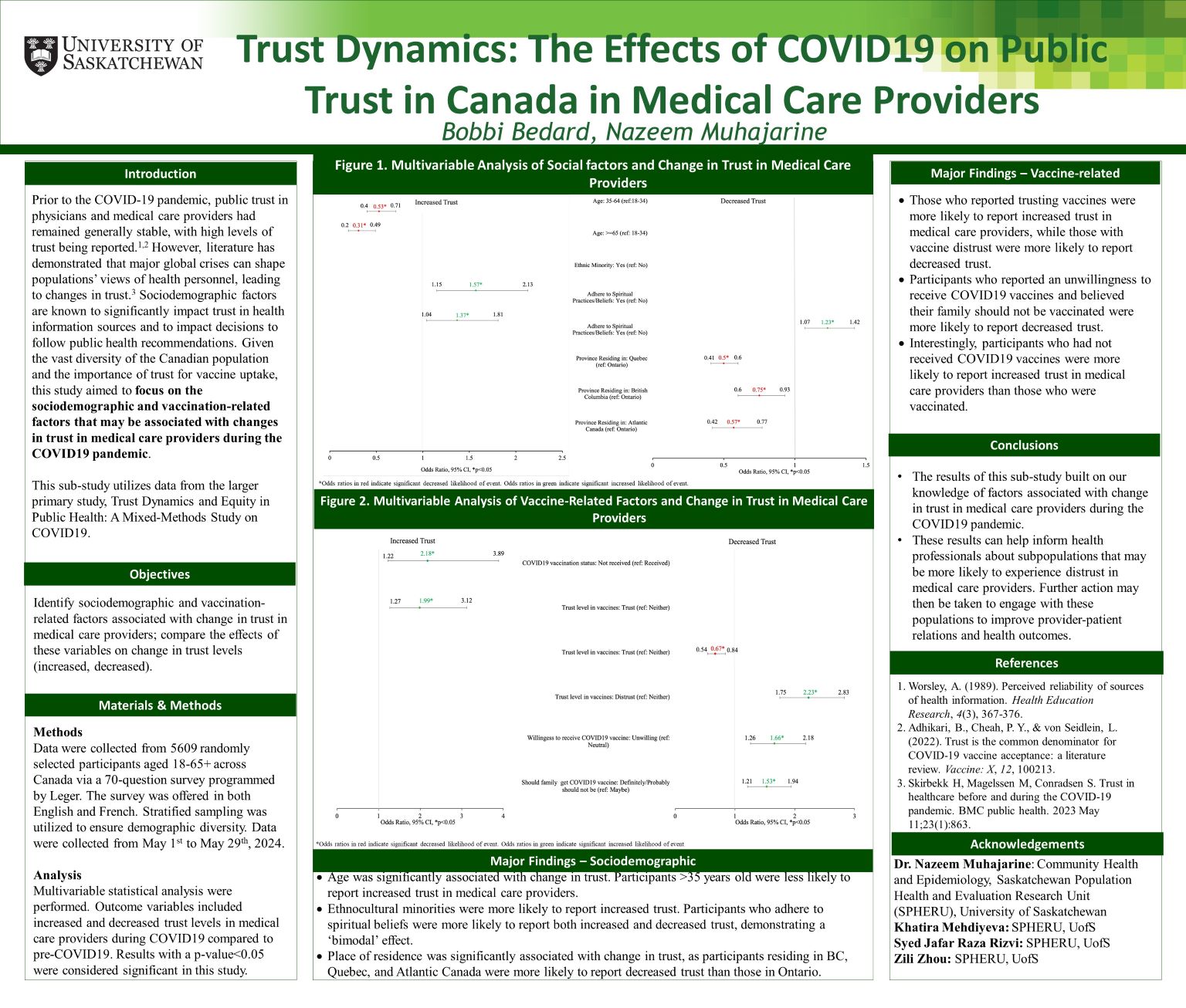
Trust Dynamics: The Effects of COVID19 on Public Trust in Medical Care Providers
Bobbi Bedard
Prior to the COVID-19 pandemic, public trust in medical care providers had remained generally stable, with high levels of trust being reported.1,2 However, literature has demonstrated that major global crises can shape populations’ views of health personnel, leading to changes in trust.3 Given the diversity of the Canadian population and the importance of trust for vaccine uptake, this study aimed to identify sociodemographic and vaccine-related factors that may be associated with changes in trust in medical care providers during the COVID19 pandemic, and compare the effects of these variables on trust levels (increased, decreased). Data was collected from 5609 randomly selected participant aged 18-65+ across Canada via a 70-question survey. Multivariate statistical analysis revealed age, ethnocultural identity, adherence to spiritual beliefs, and place of resident to be sociodemographic factors that are significantly associated with change in trust medical care providers. Vaccination status, trust level in vaccines, willingness to receive vaccines, and beliefs about the vaccination of family members are also associated with change in trust in medical care providers. These results can help inform health professionals about subpopulations that may be more likely to experience distrust and prompt engagement with these populations to improve provider-patient relations and health outcomes.
